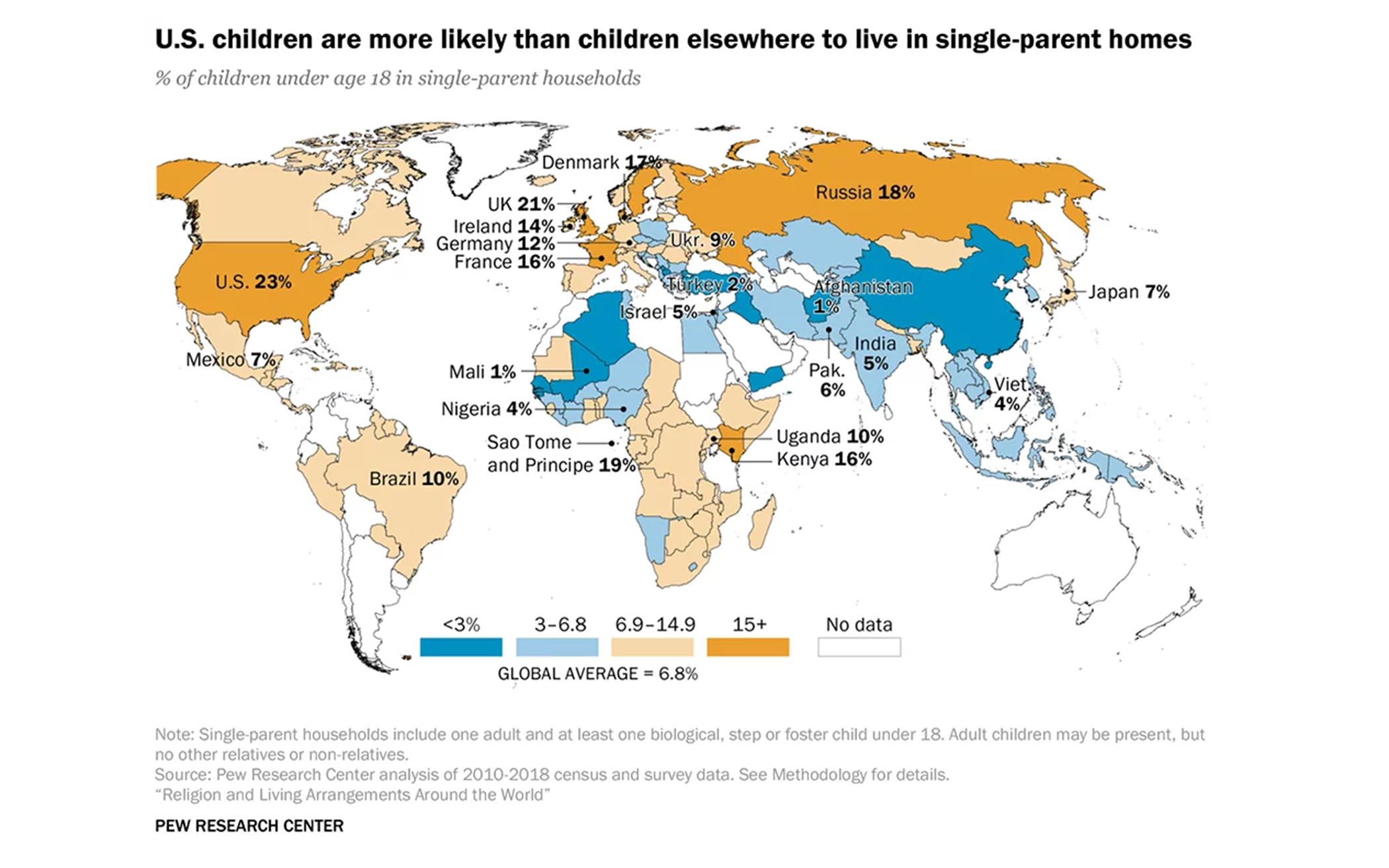Dana Perry, a 42-year-old divorced mother of three, lives in the small North Carolina town of Wilson, where she is rearing her sons in the Christian faith.
Her boys, ages 18, 16, and 11, go to church alongside her on Sundays and attend youth group at another church on Wednesdays.
“It hasn’t changed anything about our faith or the way we live out our faith,” she said of her divorce three years ago.
Perry’s single-parent household is increasingly common, especially among Christians.
A new study from the Pew Research Center that compares the size and composition of households among the world’s different faiths finds that Christian children, more than members of any other religious group, live in single-parent homes. And women, particularly Christian women, are more likely than men to live as single parents.
The study also looked at the size of households. And, again, researchers found that Christians—as well as Jews and people of no faith—live in the smallest households. In the U.S., the three groups live in similarly sized households, on average—3.4 people for Christians, 3.2 for people of no faith and 3.0 for Jews.
That may not be intuitive, given that Jewish and Christian teachings value marriage and family.
The study acknowledges that religion is not the only cause at play here. Many factors affect household sizes, some perhaps more important than religion. Those might be cultural norms, income, education, access to good health care and retirement benefits.
“It’s interwoven and bidirectional, and we can’t parse the main cause,” said Stephanie Kramer, a Pew researcher. “The causal arrows are going in so many directions.”
Yet the findings related to religion are nonetheless intriguing. The study finds that:
- Muslims across the globe live in the biggest households, with the average Muslim residing in a home of 6.4 people.
- A majority of the world’s Hindus live with extended family, such as grandparents, uncles and in-laws.
- One in 10 Jews worldwide live alone — more than members of any other religious group.
- Buddhists are least likely to live in two-parent families. Though even in single-parent households, Buddhists are more likely to have extended family in the home.
Geography also plays a huge role.
By region, people tend to form the smallest households in Europe (3.1) and North America (3.3). The biggest households are in sub-Saharan Africa (6.9) and the Middle East-North Africa (6.2). Latin America and the Caribbean (4.6) and the Asia-Pacific region (5.0) fall in the middle.
Yet even among these regions, religion still seems to have an impact.
A good example is Nigeria. Africa’s most populous nation is almost evenly split between Christians living in the country’s south and Muslims living in the country’s north. But even in the same country, Nigerian Muslims have an average household of 8.7 people; Nigerian Christians just 5.9. (A similar pattern within a country is true for Senegal: Muslims there live in 14-person households on average, while Christians live in homes of about nine members.)
In the survey, Pew aggregated data from multiple demographic and health surveys, census data, General Social Surveys and European Social Surveys, as well as country-specific studies. The final dataset was based on 20 million responses representing the living arrangements of about 83 million people. All the data was from 2010 and on.
Among the 130 countries with data available on households and religious affiliation, the household size experienced by the average person ranges from 2.7 people (in Germany) to 13.8 people (in Gambia).
The study was produced by Pew as part of the Pew-Templeton Global Religious Futures project, which analyzes religious change and its impact on societies around the world.
© 2019 Religion News Service
The Banner has a subscription to Religion News Service and occasionally re-publishes articles of wide Christian interest, according to the license. This story has been edited for length. The original story can be found here.
About the Authors
Yonat Shimron, Religion News Service
Religion News Service is an independent, nonprofit and award-winning source of global news on religion, spirituality, culture and ethics.

